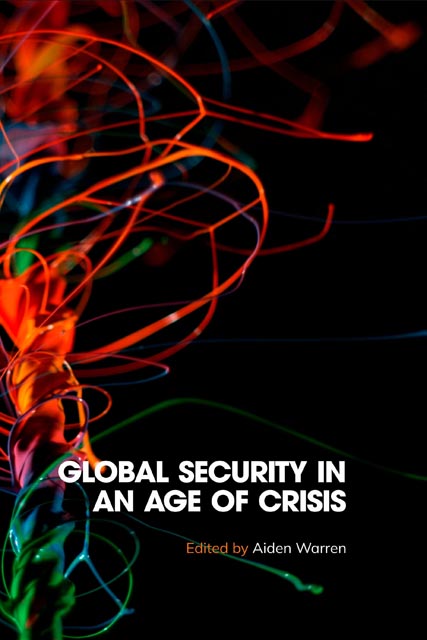3 - Globalization and Security: A Great Unsettling
Published online by Cambridge University Press: 14 July 2023
Summary
Introduction
We now live in a world of abiding existential insecurity. Sometimes a particular dimension of human insecurity hits us in the face. Mostly it accumulates behind our backs as an intensifying matrix of nonpalpable threats and risks. Whereas once, people could find sanctuary far from the madding shroud of risk, the risk matrix is becoming increasingly interconnected and globalized. Nuclear winter will not fade off at its edges. Viral pandemics arrive with dramatic virulence, even in ostensibly isolated places. And climate change is globally changing the planet, including in ways that become even more intense at its poles. In short, these threats and risks are representative of ontological changes that are unsettling all social and environmental life across the planet.
In previous work, Manfred Steger and I named this globalizing deepening process the Great Unsettling. But without further explanation this short-hand designation too easily gets reduced to either psychological unease or accumulating physical disruption of planetary systems. What we intend this concept to mean includes and goes beyond the sense of deep agitation about climate change, solastalgia, or the general feeling that all is not right in the world. It is more than the physical disruption of the world by ripping, arming, extracting, polluting, cutting down, and commodifying—all dimensions of a longer-term history. More broadly, it describes the objective and subjective unsettling of the human condition in general that has been intensifying over the last half century or so. This ontological unsettling turns on the relativization of basic ontologies of living: embodiment, time, space, epistemology, performativity, objectivity, subjectivity, and so on. Non-relativizing ways of life continue, as do older forms of exploitation and domination, but they are increasingly drawn into contradictory and disjunctive relations with newer developments.
Disjunctive relations are as true of questions of military and other forms of security as everything else. The increasingly disembodied war fought from the skies over Afghanistan, for example, was nevertheless associated with mortal attacks on the bodies of thousands of combatants and civilians. Similarly, the final outcome of that war was disjunctive as part of a more general trend in which the distinction between winning and losing wars has all but lost its meaning.
- Type
- Chapter
- Information
- Global Security in an Age of Crisis , pp. 62 - 83Publisher: Edinburgh University PressPrint publication year: 2023



